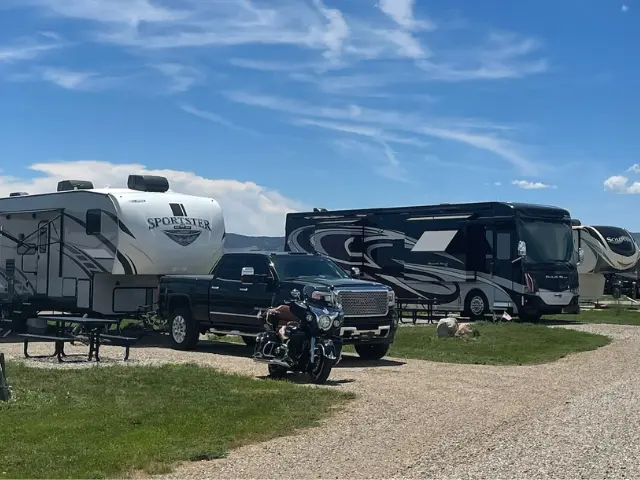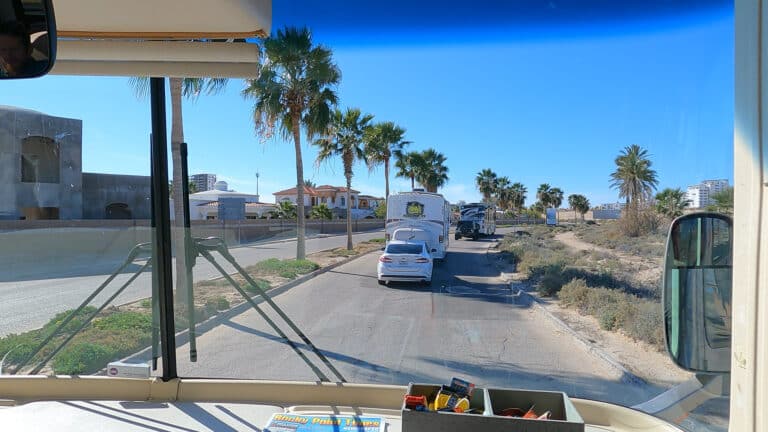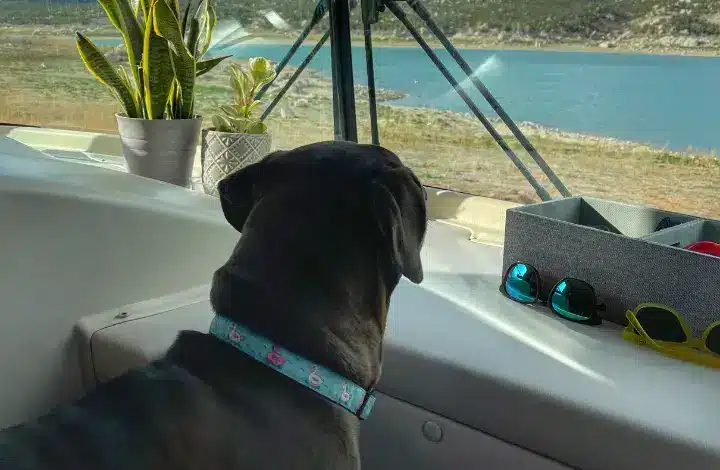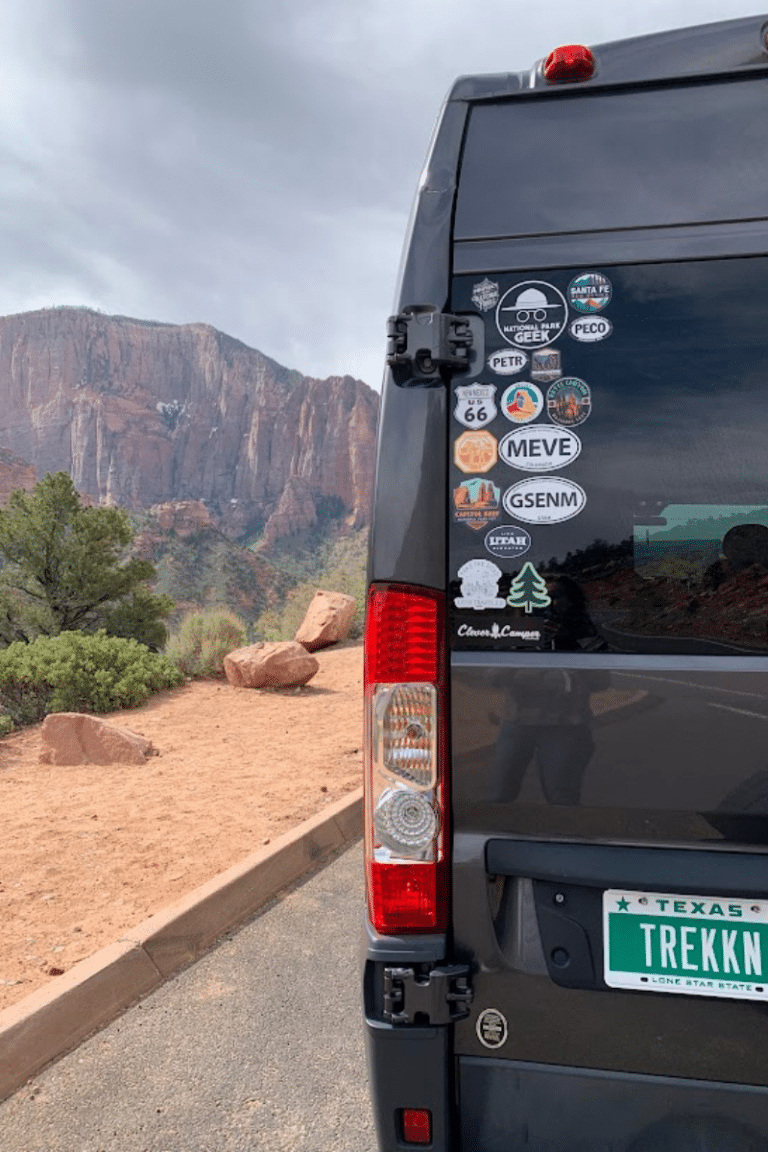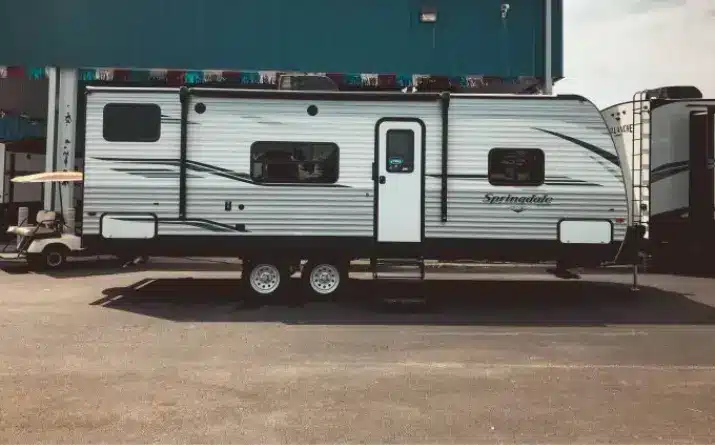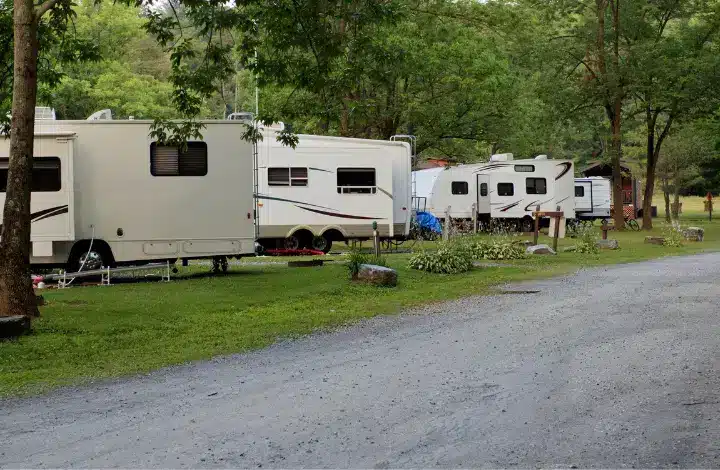Do You Have What it Takes to Live in an RV Full-Time?
Instagram images and YouTube recaps of travel adventures make the RV lifestyle look like a dream. In some ways, it is. You can chase 70 degrees year-round, visit friends and family across the country, explore national parks, and see the places you’ve always dreamed of visiting.
But there are downsides, too, and all that freedom comes with a cost. So, do you have what it takes to live in an RV full-time?
There’s more freedom and flexibility in RVing than most of us have experienced before in our adult lives, and there’s a lot of joy in that. You can wake up somewhere new every day or stay in one spot and become a local for the summer.
But, there is a lot to consider. So before you sell your home and hit the road, ask yourself a few hard-hitting questions to determine if you’re truly ready for the full-time RV experience.
Tiny Living on the Road
How Do You Feel About Living in a Very Small Space?
Living in an RV means saying goodbye to spacious living rooms, dishwashers (usually), and large kitchens. Ask yourself if you can live comfortably in a compact space, with all that it entails.
For example, I loved cooking complex and involved meals when I lived in a house. But in an RV, I don’t enjoy cooking anything that takes more than one cutting board of prep space because that’s all I have to work with.
Your fridge, counter space, and stovetop will all be limited. And propane ovens simply don’t work as well as the residential versions you’re used to.
Practice cooking (and washing dishes) in a very limited area for a week or so and see how it goes. If it drives you crazy, you might be in for a rude awakening when cooking in an RV—especially if you’re looking at something as small as a van or a truck camper.
Small spaces also require lots of downsizing, which can be hard to do. I moved the stuff I couldn’t bear to part with into a storage unit, where it lived for the first two years of my life on the road until I was ready to say goodbye.
Breakable glassware and beloved wall hangings are just two categories of items that don’t mesh well with RV living. Unless you have a Class A with lots of storage space, you probably won’t be able to fit most of your kitchen appliances or holiday decorations, either.
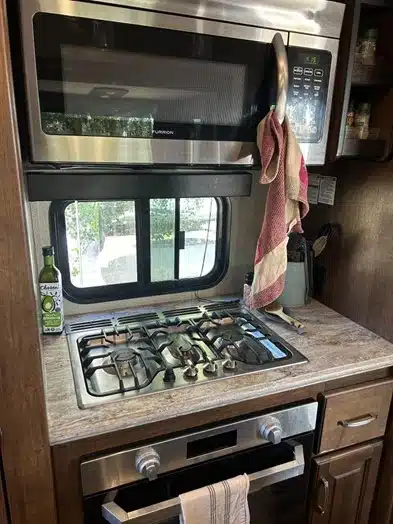
Make sure you’re ready to part with most of your stuff before you hit the road. For me, saying goodbye to many, many boxes of books that once filled an entire wall of my home was the hardest part. What will you have to part with, and is it worth the tradeoff for you?
The only constant with full-time RV living is change. Consider whether your travel dreams are worth the unknowns you will face daily.
How Well Do You Handle Constant Change?
In RV life, the only constant is change. There is always something broken, an unexpected weather event, an RV park water outage, or some other disruption waiting to derail your plans and throw off your day/week/month.
If you have trouble adapting to new environments and routines, RV life will be challenging for you.
When I first hit the road, I underestimated the mental strain of constantly adapting to new surroundings. I never know where to find the nearest grocery store, gas station, laundromat, or vet. If I want to go for a walk, I need to search for nearby trails.
Want to grab a drink or dinner in town? You’ll have to search for that too.
Constantly making little decisions like this really does fatigue your brain over time. It costs me a lot more energy every day than I ever imagined it could—not to mention adapting when things change unexpectedly.
If you’re a person who thrives on constant newness, you’ll probably love RV life. Full disclosure: this is NOT me, and I love RV life anyway. But it has taken me years of practice to adapt. Consider whether the allure of travel is worth the constant unknowns you’ll handle daily.
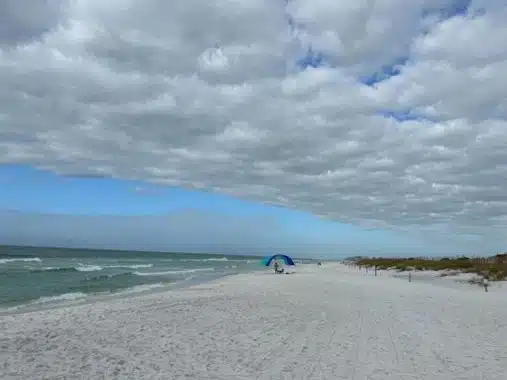
Are Your Finances in Good Shape?
A quick caveat to my take on this question: There are absolutely RVers out there who use full-time travel to live more minimally than they did in a house. It is possible, and I have met people who do it.
However, after nearly five years of full-time travel, I can say that it takes a lot of intention to save money doing it—especially after 2020. If you’re not careful, you can spend a LOT on campgrounds, fuel, and fun activities in the places you visit. It adds up fast.
Maintenance Costs
For me, RV life has actually been more expensive than renting or living in a home. A big chunk of this is maintenance: something is constantly breaking, and often, these things are expensive.
I’m not handy enough to repair RV slideouts or a diesel engine on my own, so I have to pay technicians to help.
Campground Fees
I also enjoy staying in state park campgrounds or traveling with family, which often involves staying in pricey RV parks. When I’m in a new spot, I enjoy experiences like 4WD tours, swimming with manatees, and eating the local cuisine.
Travel Costs
Traveling also means paying for fuel—lots of it. All of this costs money, and it costs far more than I’d budgeted when I first hit the road. Of course, your mileage in this arena will vary, but proceed with caution if your primary motivation for full-time travel is saving money.
While living in an RV can be cost-effective, it comes with its own set of financial responsibilities, so ask yourself the following questions:
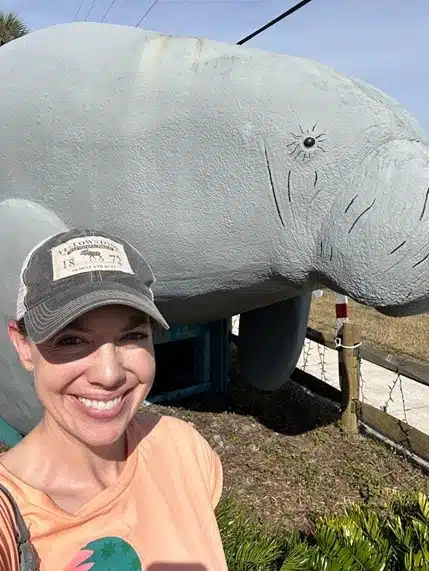
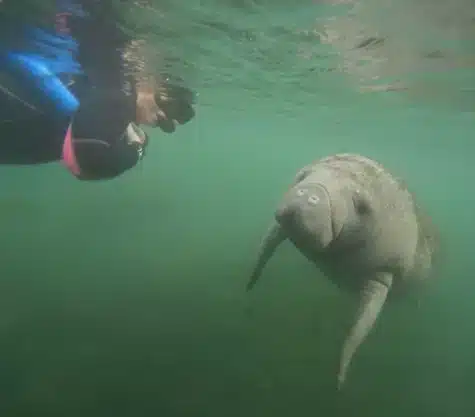
What are Your Healthcare Requirements?
Staying healthy is just as important in an RV as in a sticks-and-bricks home. But regular medical check-ups and prescriptions can be challenging to manage on the road, especially if your insurance carrier only covers you in the state where you reside (as mine does).
Research which providers and services are covered through your insurance and what you can access while you’re on the road.
Note that this isn’t a dealbreaker. I get all my annual doctor’s appointments done once a year when I’m back home. But that means I have to travel back every year to get these things accomplished.
If that’s not something you’re willing to do, make sure you have insurance with national coverage, and think through your plan for any unexpected occurrences that might impact your health.
Prescriptions can be tricky, too, so make sure you can get any necessary prescriptions filled while you’re out and about.
Who are You Traveling With and Who are You Leaving Behind?
Isolation is one of the most common reasons why RVers leave the road, and it hits nearly everyone in their first year of full-time living.
Even if you’re traveling with your partner, the distance from your home base and your usual network of family and friends can feel overwhelming.
If you’re an extrovert who loves meeting new people and makes friends easily, you probably won’t have any trouble making new friends around the campfire. But for most of us, building a new support system on the road takes time.
This lifestyle can take its toll on your kids, pets, and the family members you leave behind. If one partner is more enthusiastic than the other about RV living, that can also cause strain.
Living on the road can get lonely, so be honest about your social needs. Are you comfortable with long periods of solitude, especially if you aspire to do a lot of boondocking in remote areas? How will you maintain relationships with your friends and family while you’re on the road? How (and where) will you spend major holidays?
Do You Have any Mechanical or DIY Repair Skills?
RV maintenance is a big part of the lifestyle. Do you have basic repair and maintenance skills, or are you willing to learn? How will you handle unexpected challenges like breakdowns or severe weather events?
When I first hit the road, I could never have imagined the number of repairs I’d end up doing myself—partly to save money, and partly because no one else was available to help me.
YouTube can take you a long way, but there’s a lot of time and energy involved in unplanned repairs. On one memorable occasion, I pulled into a Cracker Barrel parking lot with hours of computer work to get done, only to find that my kitchen sink had dropped out of my counter.
The sink had shattered everything in the drawer underneath it, causing a leak in the process.
Suddenly, I had a new skill to learn and a repair that disrupted my work day. Are you the kind of person who can roll with unexpected mini-disasters on a regular basis, or do you need more predictability?
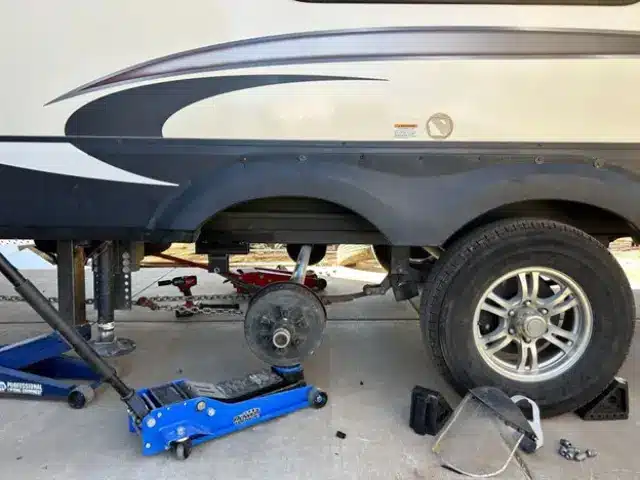
Can You Work From Anywhere?
This has gotten a lot easier in recent years, which might be why you’re thinking of going full-time in the first place. Improved digital tools and more workplace flexibility have made remote work a very real possibility for most of us.
That said, consider the logistics of internet access. How will you get online, and how much are you willing to spend on the internet each month? What are your plans for ensuring consistent connectivity? You’ll need a plan A, B, and probably C if your job depends on an internet connection.
How Will You Get Mail?
Some of the logistics of RV life are downright unsexy. From establishing your legal residency to getting mail, there’s a lot to think about.
You’ll want to decide whether to maintain residency in your home state, where a friend or family member may let you use their address as your legal one. Or, you’ll need to pay for a service to help you establish residency and a legal mailing address elsewhere.
Either way, you’ll need to figure out how to get mail and complete routine tasks like emissions tests and driver’s license renewals.
Full-time RV living requires resilience, planning, and a willingness to manage unexpected challenges.
Do Your Expectations Match Reality?
If you’ve read up to this point, you probably have a pretty good idea of what the reality of RV life can be like.
There are tons of good qualities that make us love it, but there are serious drawbacks, too. So ask yourself: Why do I want to live in an RV full-time? And are the drawbacks worth it for me?
Living in an RV full-time isn’t just a change of scenery; it’s a complete lifestyle overhaul. It requires adaptability, financial planning, and a willingness to embrace new challenges. But if the thrill of waking up somewhere new is worth it to you, there’s a whole lot of good you can find on the road.
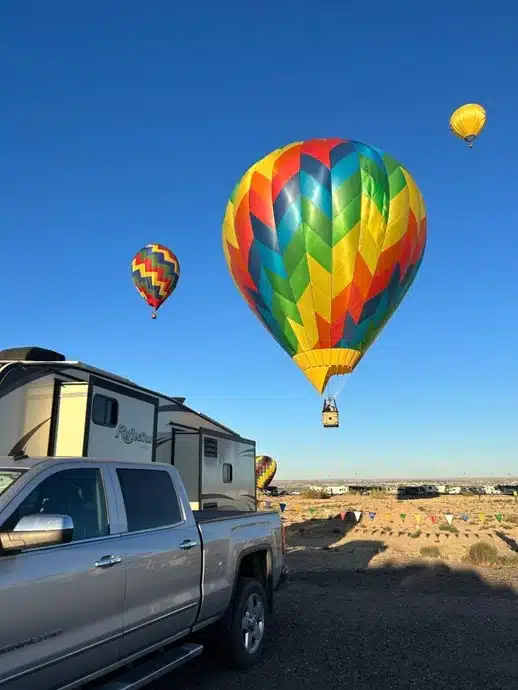
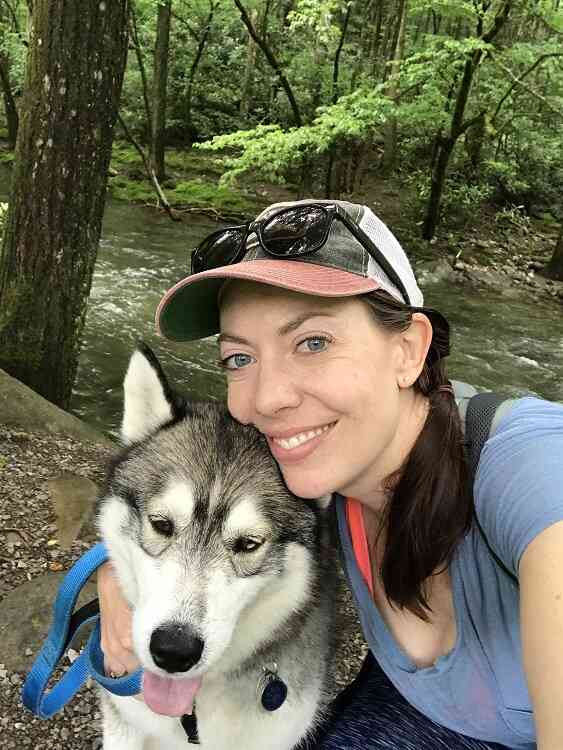
Sarah Kuiken has been a full-time solo traveler for 4 years and counting, but she’s been a solo adventurer for decades. She owns her own copywriting business, Flourish Writing, which she operates from the road. Sarah loves to explore state and national parks with her two dogs, Orion and Piper—wherever they’re allowed, of course. When she’s not whipping up web copy for fellow entrepreneurs, she’s probably out hiking or paddle boarding with the dogs in tow. Learn more about her freelance writing business at FlourishWriting.com.


